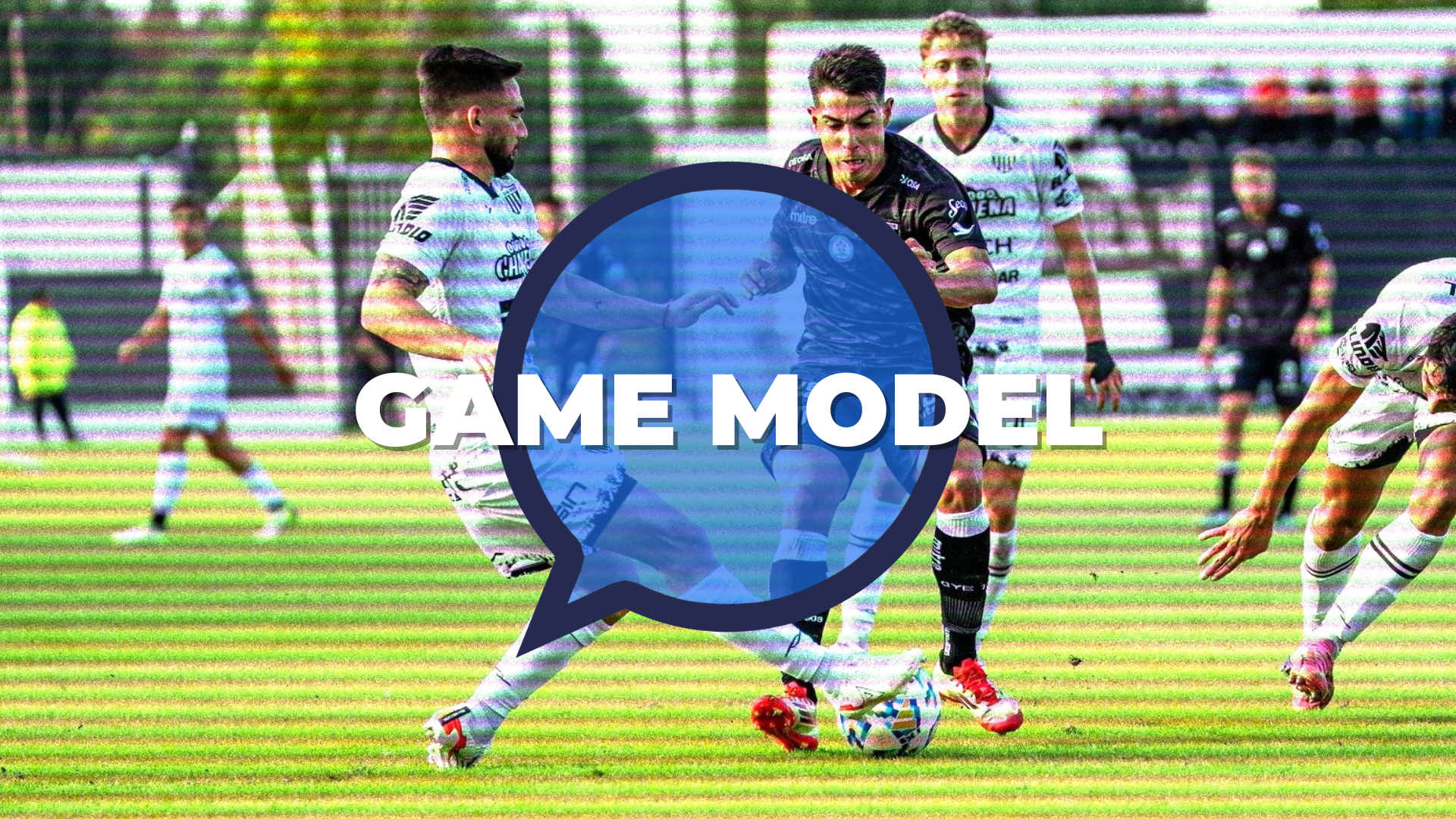
What Is A Game Model?
A game model is the framework that explains how your team plays the game across its four key moments:
- In Possession: How you build, progress, and create chances.
- Out of Possession: How you defend and regain control.
- Transition to Attack: What happens immediately after winning the ball.
- Transition to Defend: How you react after losing possession.
Think of it as your “big picture” of football. It links your coaching philosophy with the practical details that players need on the pitch, from formations and build-up patterns to pressing behaviours and set-piece strategies.
Why Does It Matter?
- Clarity & Consistency: A shared model ensures everyone — players, staff, even parents — understands how the team wants to play.
- Guided Training: Helps you design sessions that reflect match realities.
- Decision-Making: Clear principles speed up choices on the pitch.
- Player Development: Young players develop habits that support both progression and team identity.
- Adaptability: Reviewing and updating the model keeps your style flexible without losing its essence.
What's In A Game Model?
When developing your Game Model, consider including the following:
- Preferred formation(s) that match your style.
- Principles of play for each moment (e.g., keep possession, press together, quick transitions).
- Approaches to set-pieces, both attacking and defending.
- Behaviours expected from individuals, units, and the team as a whole.
How Do You Create One?
- Start With Your Philosophy: What do you want your team to stand for?
- Choose a Formation: Pick a shape that suits your players and style.
- Define Simple Principles: One or two per moment of the game.
- Design Training Around It: Use practices and games that reinforce these principles.
- Communicate Clearly: Link feedback to the model before, during, and after matches.
- Review & Adapt: Reflect regularly and update as players progress.
Key Advice For Coaches
- Keep It Simple: Don’t overload players with too many principles at once.
- Adapt to Age Groups: For younger players, focus more on fundamentals (e.g., building from the back, creating overloads) rather than complex tactical rotations.
- Make It Visible: Use whiteboards, visuals, or handouts so players can “see” the model.
- Connect to Match Day: Reinforce principles with clear pre-game focus points and post-game reflections.
Remember!
A game model is not a set of rigid rules. It’s a guide that brings consistency, clarity, and identity to your team.
As you grow as a coach in the 11v11 game, developing and adapting your own model will be one of the most important steps you take.
Want To Learn More?
If you want more guidance, our soon-to-be-released Mastering The 11v11 Game coaching CPD course on the MiMentor platform will go deeper - providing practical tools, resources, and examples to help you bring your game model to life and manage all aspects of the 11v11 format with confidence.
Stay tuned - course launch coming soon!
